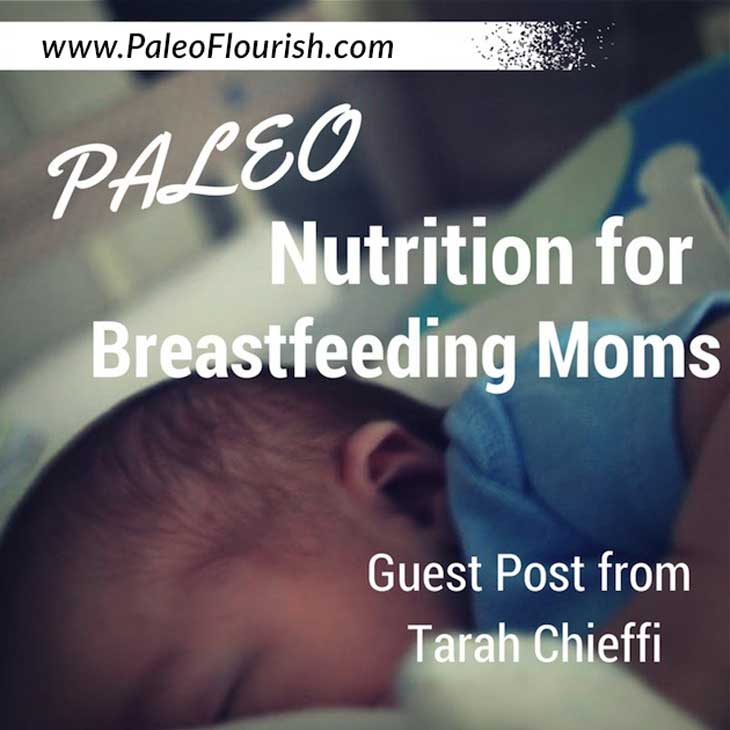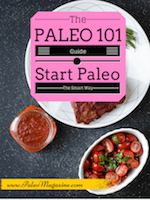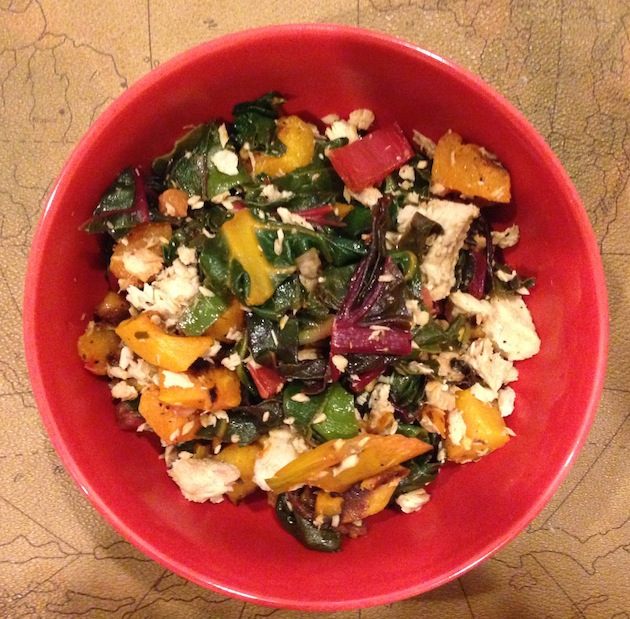Paleo Nutrition for Breastfeeding Moms – Guest Post from Tarah Chieffi

Tarah Chieffi is an author, freelance writer, blogger at What I Gather and holistic nutrition educator in the Louisville/Southern Indiana area. Tarah’s passion is working with pregnant women, new moms and families to achieve health and happiness through physical fitness and a “real food” lifestyle. Check out Tarah’s latest book, The Everything Paleo Pregnancy Book.
You haven’t slept longer than a three hour stretch in days, you aren’t sure when your last shower was and still all you want to do is snuggle up with the tiny being who is causing all this chaos. Sound familiar?
Now is a tough time to focus on nutrition, but it is actually a very important time. What you eat now can impact your milk supply, your recovery, your energy levels and even your baby’s health. More than that, even from a young age your baby is observing everything you do and learning from you. Now is the time to start setting a good example and teaching healthy habits to set your baby up for a lifetime of health and wellness.
If you are breastfeeding, the nutrients in the food you eat are being passed on to your baby through your breast milk. Even the flavor of your milk changes based on the foods you eat, and studies show it could affect your baby’s tastes later in life. Milk production also requires energy (calories) and proper hydration so you need to be sure you are eating and drinking enough to support a healthy milk supply. You need about an extra 500 calories per day and at least eight, 8 ounce glasses of water. Now is not the time to deprive yourself, though. Follow your body’s cues and eat when you are hungry. You just created a life and you are beautiful. Now is not the time to worry about getting back into your skinny jeans.
Protein, Carbohydrates and Healthy Fats
The RDA for protein for lactating women is 71 grams per day, almost twice the RDA for non-pregnant, non-lactating women. The protein content of your breast milk is directly related to your dietary protein intake so try to have some form of protein with each meal and snack to support your baby’s growth. A large egg, for example, has about 6 grams of protein and a 4-ounce grass-fed burger has about 21 grams.
You also need a steady supply of carbohydrates because your body is burning through extra energy to make breast milk. By eating fresh fruits and vegetables, and including plenty of starchy vegetables like potatoes, sweet potatoes and winter squash, you’ll give your body the energy it needs to produce milk…and hopefully keep your energy up, as well!
Don’t forget about those healthy fats, too. More than half of the calories in your breast milk come from fats. Some of these fats are made in the body, while others are passed through breast milk by way of the dietary fat you consume. Just like you, your baby needs fat from saturated and unsaturated sources so go for an assortment of fats like fatty fish, red meat, pork, eggs, nuts and seeds (and their oils), avocados and coconut. Coconut oil is especially helpful to have around. Because of its antibacterial and antimicrobial properties it can be used as a natural treatment for thrush (check with your health care practitioner) and its moisturizing properties make it a soothing balm for dry, cracked nipples.
It is especially important to focus on the essential omega-3 fatty acids. Not only do they support brain, immune and nervous system development, they also help your body to absorb the fat-soluble vitamins A, D, E and K. Good sources include salmon, sardines, flaxseeds or flaxseed oil and even Brussels sprouts. You can also take a high-quality daily fish oil supplement.
Vitamins and Minerals
The RDAs for most vitamins and minerals are similar to the levels recommended during pregnancy. Your practitioner may recommend you continue taking your prenatal vitamin, too, which will help you meet your daily intake. There are a few vitamins and minerals, however, that are required in higher amounts than during pregnancy because they are secreted in high levels through breast milk. These include calcium, and vitamins A, C and D.
We all know calcium, along with vitamin D, is one of the major players in forming strong bones and teeth. If you don’t get enough in your diet, your body will pull from its own calcium stores to provide enough for your baby’s needs. That could leave you calcium depleted so it is important you get enough to support both of your needs. The best way to do this is by eating fish canned with the bones, like salmon and sardines. There are tons of Paleo recipes out there that can be made with canned salmon, including my Garlic Rainbow Chard with Butternut Squash and Salmon.
Vitamins A and C are easy to get as long as you are eating a good variety of fresh fruits and vegetables. Bell peppers, oranges and cruciferous vegetables like Brussels sprouts, broccoli and cauliflower are good sources of vitamin C.
Vitamin D needs can be difficult to meet through diet alone and most of us do not spend enough time in the sun to get what we need so this is one you really want to pay attention to. Cod liver oil in supplement form is a good way to bridge this gap, and the best dietary sources are cold water, fatty fish like salmon and tuna, and also eggs.
Now What?
Now you know what you should be eating, but its easier said than done when you are spending all day (and night) caring for a young baby. One of my top tips for getting in the calories and nutrients you need while juggling life with a newborn is to keep a “breastfeeding caddy” nearby at all times. This can simply be a small box or basket with all of your baby care essentials, such as lotion, burp cloths and a few diapers and wipes. Throw in a water bottle for yourself and some healthy snacks so that you can eat and drink when your baby does. I like to include apples, bananas, nuts, dried fruits and my Paleo Trail Mix Bars, an exclusive recipe from my new book.
If you are ready to learn more about how a Paleo diet can help you meet your nutritional needs during pregnancy and beyond, check out my new book, The Everything® Paleo Pregnancy Book. With exercise recommendations, breastfeeding support and advice for recovering from childbirth and adjusting to motherhood, The Everything® Paleo Pregnancy Book is the only guide a mom-to-be needs to navigate a Paleo lifestyle during pregnancy. To top it all off, I’ve included over 100 recipes and a four week meal plan to set you on the path for a happy, healthy pregnancy. You can order the paperback and Kindle versions now on Amazon or find it at Barnes and Noble in stores or online.

Tarah Chieffi is an author, freelance writer, blogger at What I Gather and holistic nutrition educator in the Louisville/Southern Indiana area. Tarah’s passion is working with pregnant women, new moms and families to achieve health and happiness through physical fitness and a “real food” lifestyle. Check out Tarah’s latest book, The Everything Paleo Pregnancy Book.



